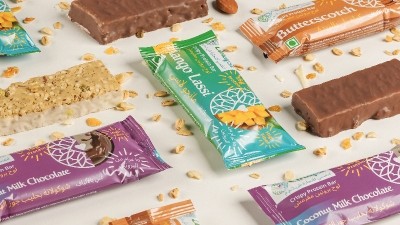India’s Gautam eyes top rice importer spot in Middle East, anticipates Saudi to be biggest growth driver

A rice miller since 1940, GGT entered the Gulf Cooperation Council (GCC) region in 2005, when it set up an office in Dubai for distribution in the UAE and surrounding markets.
Today, the firm claims to be the largest rice importer and distributor in the UAE, and second biggest in Oman. As part of its efforts to scale up in Saudi Arabia, a local office was inaugurated in January this year.
“Saudi is opening up for investors, and it is a huge market to grow in. We have opened a wholly owned company there, which would be impossible five years ago. Our objective is to become the largest importer of rice in the GCC region, and we believe that Saudi is what would help us achieve that.
“The population in Saudi is 35m, and we expect to be the top five rice importers in this market within the next decade. In the next five years, our goal is to reach about $25m of revenue annually from Saudi alone,” Gautam Aggarwal, Managing Director of GGT, told FoodNavigator-Asia.
Additionally, Aggarwal shared that the company will be adopting the same strategies as it did for penetrating the UAE and Oman markets.
“We distribute our own brands across these markets. The warehouse and delivery trucks, even the drivers and workers, are all operated and managed by GTT.
“Every country is different, but there is some coherence between GCC markets in terms of consumer requirements and psyche, retail environments etc. So, 90% of our strategies will remain the same.”
At the same time, the firm is also looking to increase its pool of HoReCa customers.
“We haven’t focused a lot on HoReCa, with the reason being that we always wanted to be consumer-centric and cater to end users. However, we are planning to do that from this year on. For instance, we are already supplying to some catering companies in the UAE, such as Transguard Group.”
Recipe to success
According to Aggarwal, GGT has managed to thrive in a “very competitive” landscape largely due to consistent product quality and ethical business practices.
“What has helped us succeed is our relentless effort on quality. Consumers have been getting the same quality of rice from us for the past 20 years, and that’s very difficult [to achieve] because the quality of crop changes each harvest. But thanks to the establishment of strong supply chains, we have been able to deliver products of consistent quality throughout the years.
“We also emphasised on preserving our reputation by paying suppliers on time. Rice is a volatile commodity like sugar and gold, but we’ve honoured our contracts even when we had big losses. Because of that, our suppliers stand by us — they supply as per our requirements and help us during tough times when good-quality rice were not available.”
While climate change has made it more challenging to manage rice crops, technological advancements in agriculture have helped improve both the quantity and quality of yield.
“Basmati rice is a very sensitive crop, so factors such as increase or decrease in temperatures and rainfall impact yield significantly. On the other hand, scientists around the world have developed seeds that are stronger, less sensitive, and can handle tough climate conditions.”
In addition, Aggarwal said that the Gautam brand has primarily grown through word of mouth over time, without spending on marketing until 2023.
“We are now investing a bit more on marketing to further spread our name and increase sales, but up until last year, it’s all been word of mouth and our product quality that brought us here.”
‘Rice’ of smaller packs
Although consumers in the Middle East, especially the millennials, have become more health-conscious in the last 10 to 15 years, the company has not seen a drop in sales due to people avoiding carbohydrate-rich rice.
In fact, despite an increased demand for brown rice, there is still huge consumption of white rice and basmati rice.
“I have met some older Emiratis who told me that they have totally stopped eating carbs, but our sales have stayed the same. However, we do observe a trend towards smaller pack sizes, which is also because of a rising number of smaller families.
“Rice is a staple food in the region and has great utility in diets. It is low in fat, high in fibre, and gluten-free. While people don’t want to over-consume carbs, they are still sticking to rice. It’s about eating in moderation — a healthy and balanced diet should consist of both proteins and carbs, and rice is an excellent source [of the latter],” Aggarwal explained.














